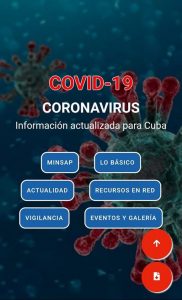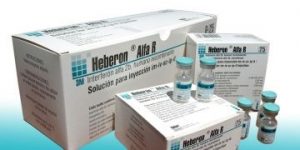February 28, 2020—Cuba’s Ministry of Public Health (MINSAP) is leading a multisector drive to head off the COVID-19 coronavirus and to keep it from spreading, should it enter the country. No cases have been confirmed thus far, although the Pedro Kourí Tropical Medicine Institute has received diagnostic kits now in use, according to Dr. Vivian Kourí of the center’s laboratories. The kits were made available through the Pan American Health Organization (PAHO).
Local family physicians, tourism professionals, customs employees and others have been trained to assist in the national strategy, which includes monitoring travelers at ports and airports, screening patients with respiratory symptoms, setting up specialized care facilities and generating public service announcements and daily updates.
Among those being closely monitored are Cuban health workers returning from cooperation stints abroad. Once home, they receive visits by their neighborhood family doctors during the first 14 days after arrival, the time considered COVID-19’s incubation period. All travelers arriving from high-risk countries or those with flu-like symptoms are monitored for the same time.
Public awareness is receiving a boost from today’s debut of a new App on Infomed, the country’s public health Internet platform, linking all health care institutions and thousands of health professionals. The App COVID-19-InfoCU is available free in Cuba at https://www.apklis.cu/
Health professionals in general, and particularly those who would be caring for coronavirus patients, have been trained to protect their own health, according to Dr. Francisco Durán, National Epidemiology Director. Laboratory and other personnel at the Tropical Medicine Institute also attended a regional workshop in Mexico earlier this month on case detection, and use and management of the COVID-19 diagnostic kits.
Cuba has not imposed travel restrictions, and instead is relying on surveillance measures at entry points, as well as local follow up and travelers’ individual responsibility to report symptoms, according to health officials. However, Dr. Durán noted that the potential for COVID-19 to spread via asymptomatic carriers makes epidemiological surveillance all the more important.
Concerning treatment, he noted that various protocols are under consideration, including Cuban biotech’s alpha-2B recombinant interferon now in use in China where the epidemic began, plus oseltamivir, an antiretroviral also produced domestically.
Eduardo Martínez, General Director of the Cuban holding company BioCubaFarma, notes that the coronavirus depresses the body’s production of natural interferon and the Cuban product supplants this deficiency, strengthening patients’ immune systems. The medication is produced in China by the joint venture firm ChangHeber, headed by general manager Li Wenlan, who reported that 190,000 units have been made available in the last few weeks for patient care in China itself.




